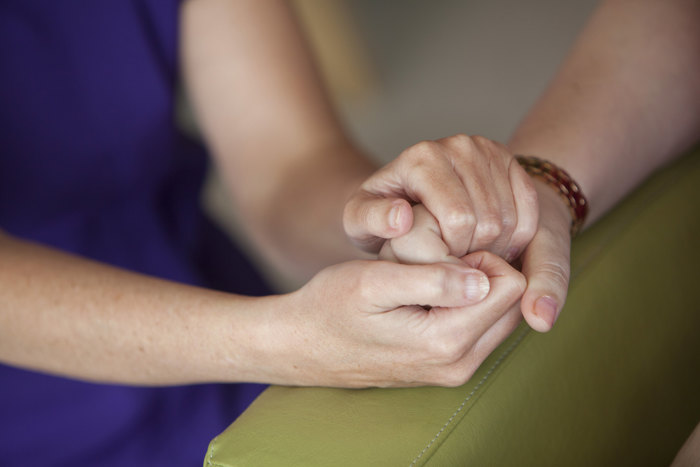Hearing that someone you care about has cancer is difficult to deal with but if that cancer is incurable or terminal it can be overwhelming. There are a number of things you and your family may need to consider while preparing for their end of life care.

Helping a partner or loved one to plan ahead may be a difficult thing to do when dealing with your own emotions but it can help you understand what your loved ones wishes are and help them make decisions about future treatment and care. Although challenging you may find it rewarding to be able to make their last few years, months or days as comfortable and dignified as possible.
Some things to consider and discuss with your loved one:
Caring for someone at the end of their life?
Caring for someone with a terminal illness can be very physically demanding and emotionally draining but it can also be a rewarding experience and you will get comfort from knowing that you did all that you could to help them in their last few months and weeks.

What’s it like to care for someone at the end of life?
Caring for someone with a terminal illness can be very physically demanding and emotionally draining but it can also be a rewarding experience and you will get comfort from knowing that you did all that you could to help them in their last few months and weeks.
You can help support your friend or loved one by doing practical things like shopping, cooking, reading to them or picking up medication. You can also help with personal care such as washing, shaving or dressing. If this becomes too difficult or embarrassing for you both then there are healthcare and social care providers that can assist with this.
Providing emotional support for the person you are caring for can be very important, listening, talking, spending time doing things they enjoy and just being there for them can be rewarding for you both.
Taking care of my own health
Looking after your own health, mental and physical, while caring for someone nearing the end of life is equally as important as caring for your loved one. Being mindful of your own needs and taking breaks away from the situation to exercise or relax or sleep can be beneficial for you and the person you care for.
Being a carer for anyone with a terminal diagnosis is emotionally draining and you may experience a whole host of difficult emotions, anger, resentment, sadness, isolation, grief, fear, anxiety and depression. It’s important that you ask for help if you are struggling so talk to your GP in the first instance who may be able to refer you for counselling.
Many cancer charities offer carers help with counselling, stress relief and relaxation.
For more information on organisations offering counselling and relaxation for carers see our useful resources page. (link)
Support For You As A Carer
Support available to you as a carer can include, information and training for carers, advice and help to claim any benefits you are entitled to, respite from caring, stress management, counselling, relaxation therapies, access to support groups and leisure activities such as walking groups, swimming, singing or art or help with housework or gardening.

Getting support in my caring role
In Scotland if you are a carer and need practical support to look after someone you care for, you may be eligible for an Adult Carer Support Plan or Young Carers Statement (under 18). This will look at what impact caring has on your life, including, physical, mental and emotional needs, and whether you are fit or willing to be a carer.
Support available to you as a carer can include, information and training for carers, advice and help to claim any benefits you are entitled to, respite from caring, stress management, counselling, relaxation therapies, access to support groups and leisure activities such as walking groups, swimming, singing or art or help with housework or gardening.
Other support such as modifications to your friend or loved one’s home to make it more accessible, provision of equipment like grab rails or hoists, personal care from a care worker, replacement care so you can have a break can also be provided usually by contacting your local Social Services department within your local authority.
Find out more about what support is available from Carers Scotland
Talking to other carers who are or have been in a similar situation as you can be beneficial. It may also be helpful to watch videos about the experiences of other carers. Healthtalk has a selection of video clips about caring for someone with a terminal illness. These show people discussing their own experiences of caring and cover a range of topics.
Getting Financial help as a carer
You may be eligible to receive Carer’s Allowance if you are aged 16 or over and caring for someone for at least 35 hours per week. The person you care for must also already be getting certain benefits either the daily living component of Personal Independent Allowance or the care component of Disability Living Allowance or Attendance Allowance.
For more information see the DWP
If you live in Scotland, an extra payment called the Carer’s Allowance Supplement may also be applicable. Find out more about Carer's Allowance Supplement
Other Useful Links and resources:
Healthtalk
Carers UK
NHS Carers Direct
MacMillan Cancer Support
Carers Scotland




 Donate
Donate